VitrA’s recycled washbasin is a world first
VitrA reveals its recycled ceramic washbasin, made using almost 100 per cent waste materials from the bathroom company’s own production process
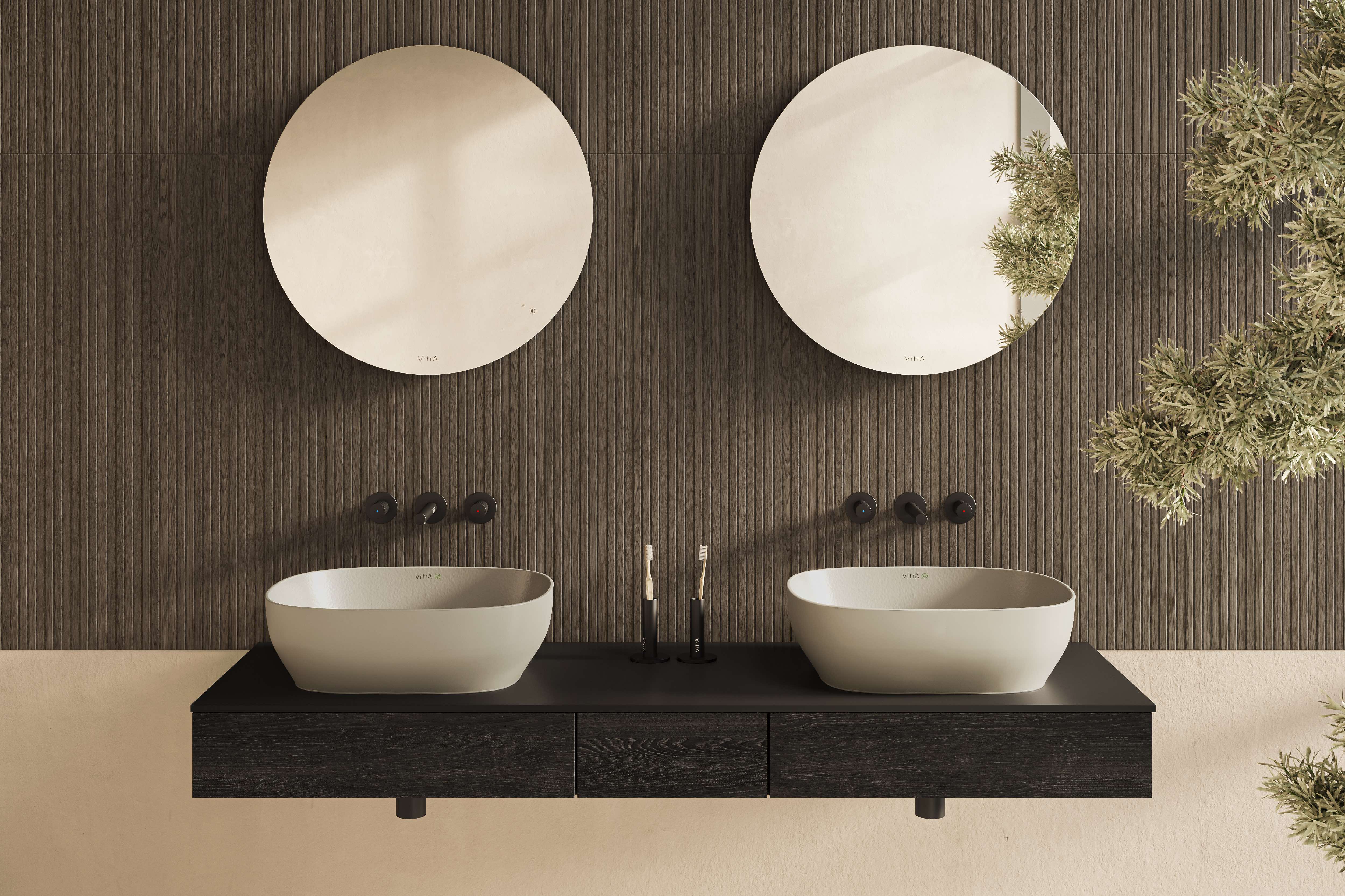
In partnership with VitrA
VitrA has created what it describes as the world’s first 100 per cent* recycled ceramic washbasin (only the glaze does not yet use recycled materials). Utilising waste materials, including discarded ceramics, from the brand’s own production plant in Bozüyük, Turkey, the innovative new product has been developed for minimal environmental impact. The project underscores VitrA’s commitment to sustainability by reducing waste, conserving resources, and maximising circular economy opportunities.
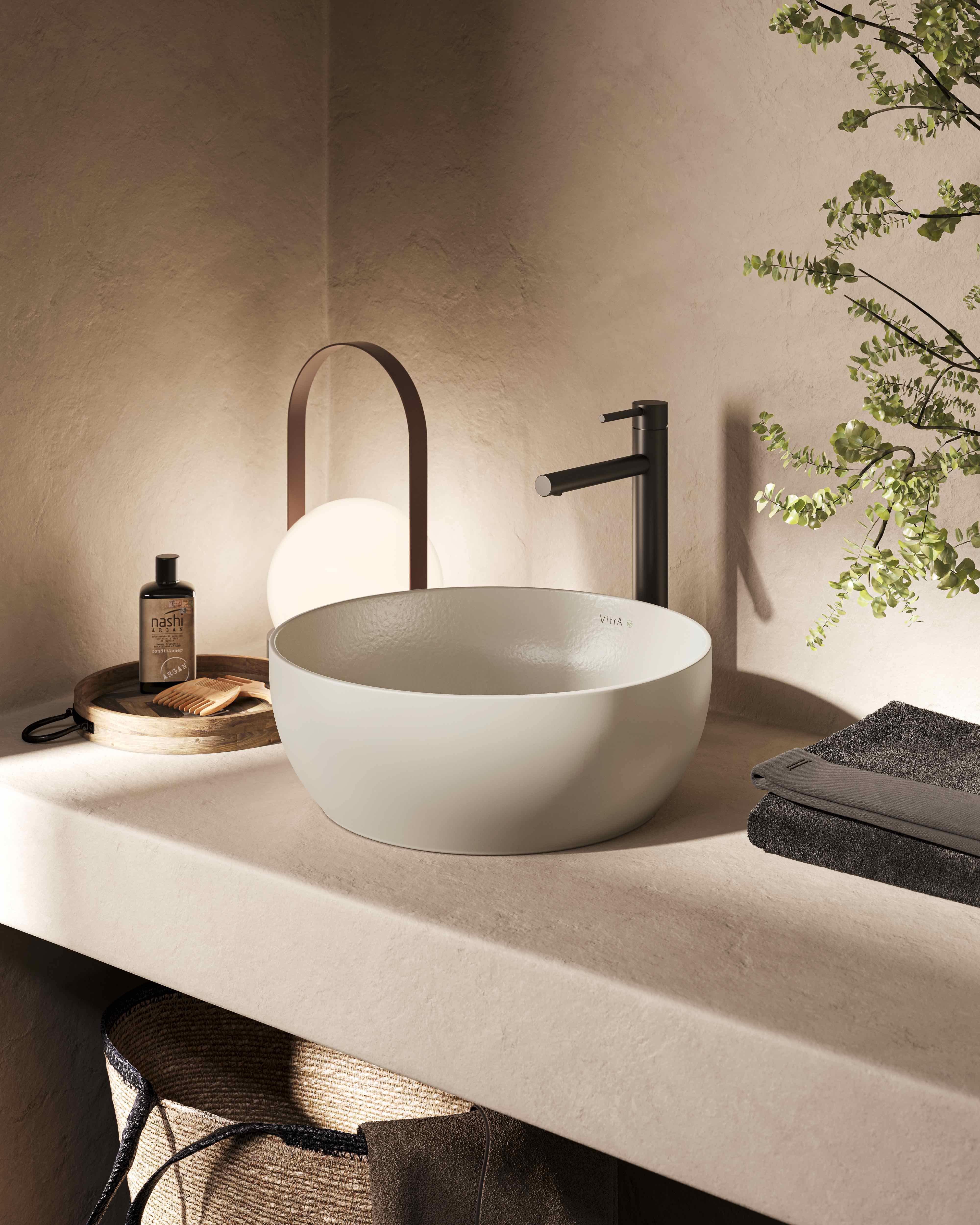
Available in matt taupe and five distinct shapes, the new design is, says the brand, just the beginning of a collection that will feature additional products and colours.
Tests conducted by the Life Cycle Assessment evaluation process demonstrated that the use of waste materials in the product led to an almost 30 per cent reduction in its global warming potential. The sustainable manufacturing process resulted in approximately 5kg of raw material savings per basin (a 36 per cent improvement), and a 2.48 kWh reduction in electricity usage per basin (a 38 per cent enhancement), due to the decreased reliance on raw materials.
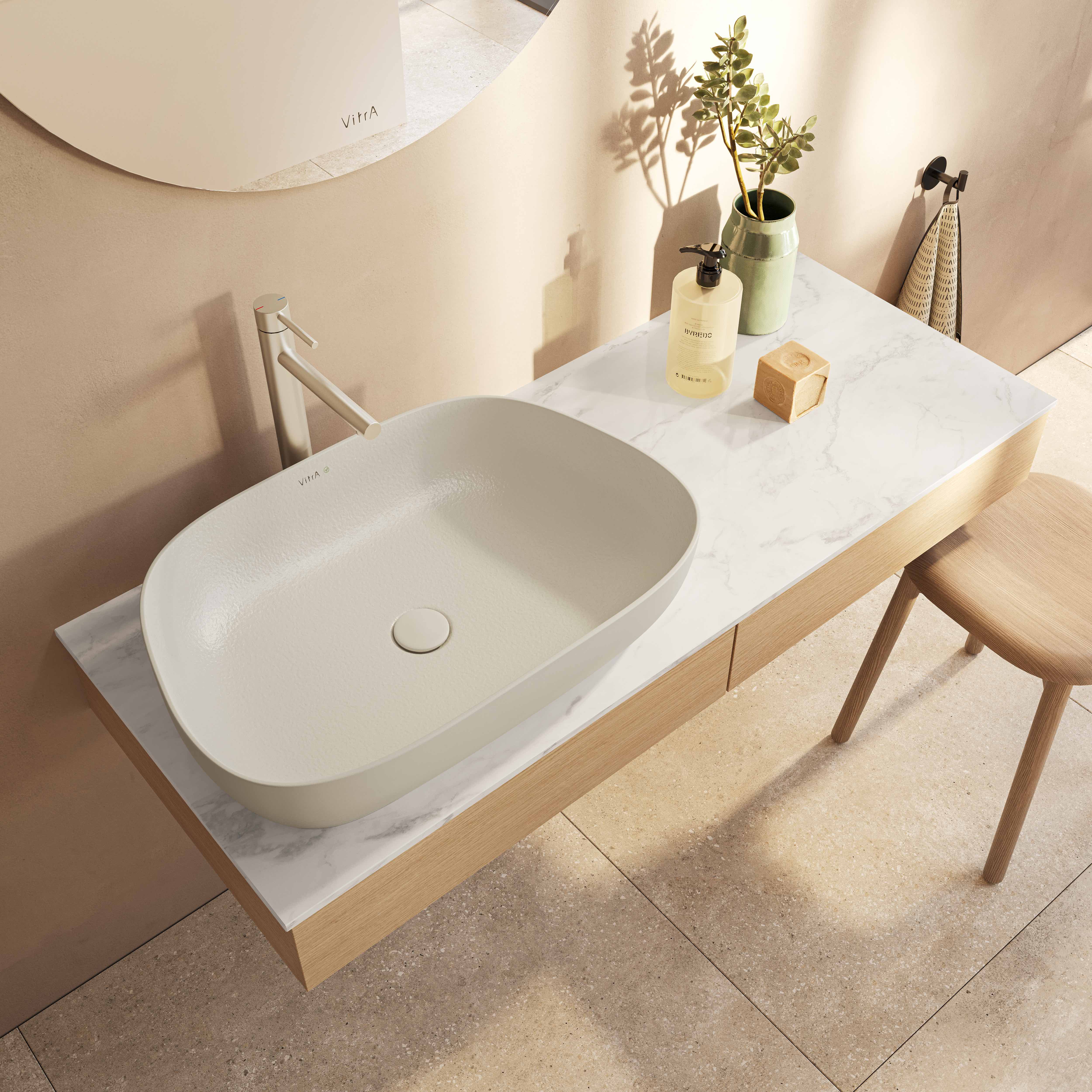
‘By integrating circular design principles and innovative business models, we’ve begun repurposing waste from our ceramic sanitary ware production’ says VitrA CEO Özgen Özkan. ‘This approach allows us to conserve natural resources, reduce environmental impacts, and cut carbon dioxide emissions, all while managing costs and material constraints more effectively. Our recycled washbasin embodies our dedication to resource efficiency, waste reduction, and a stronger circular economy.’ He adds, ‘These new washbasins benefit from VitrA Hygiene technology and we are advancing our research and development efforts to incorporate recycled materials into the glazing process.’
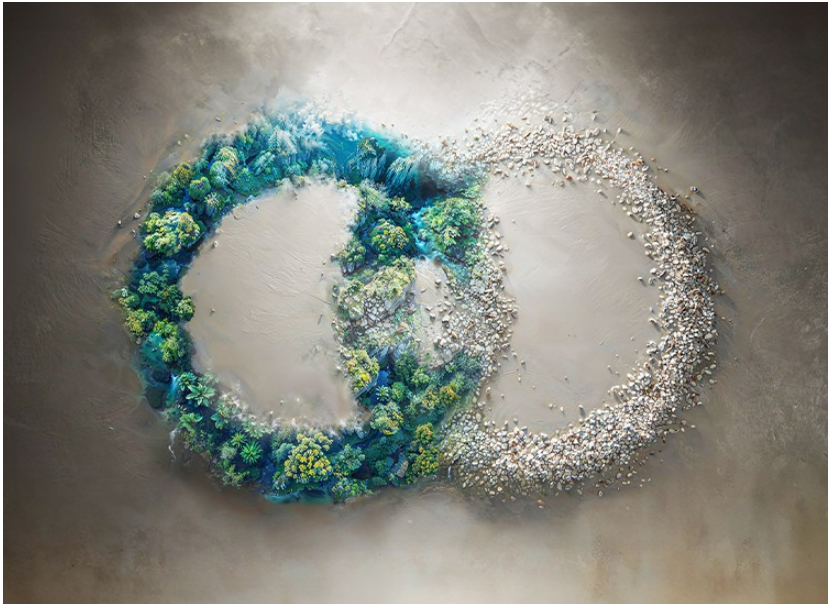
VitrA campaign imagery
VitrA is now exploring further designs and applications for its initiative, from packaging to branding, all based on the use of up to 100 per cent recycled materials derived from its own production waste.
*The entire basin is produced from nearly 100 per cent recycled waste materials that are generated and disposed of during the CSW manufacturing process.
Wallpaper* Newsletter
Receive our daily digest of inspiration, escapism and design stories from around the world direct to your inbox.
-
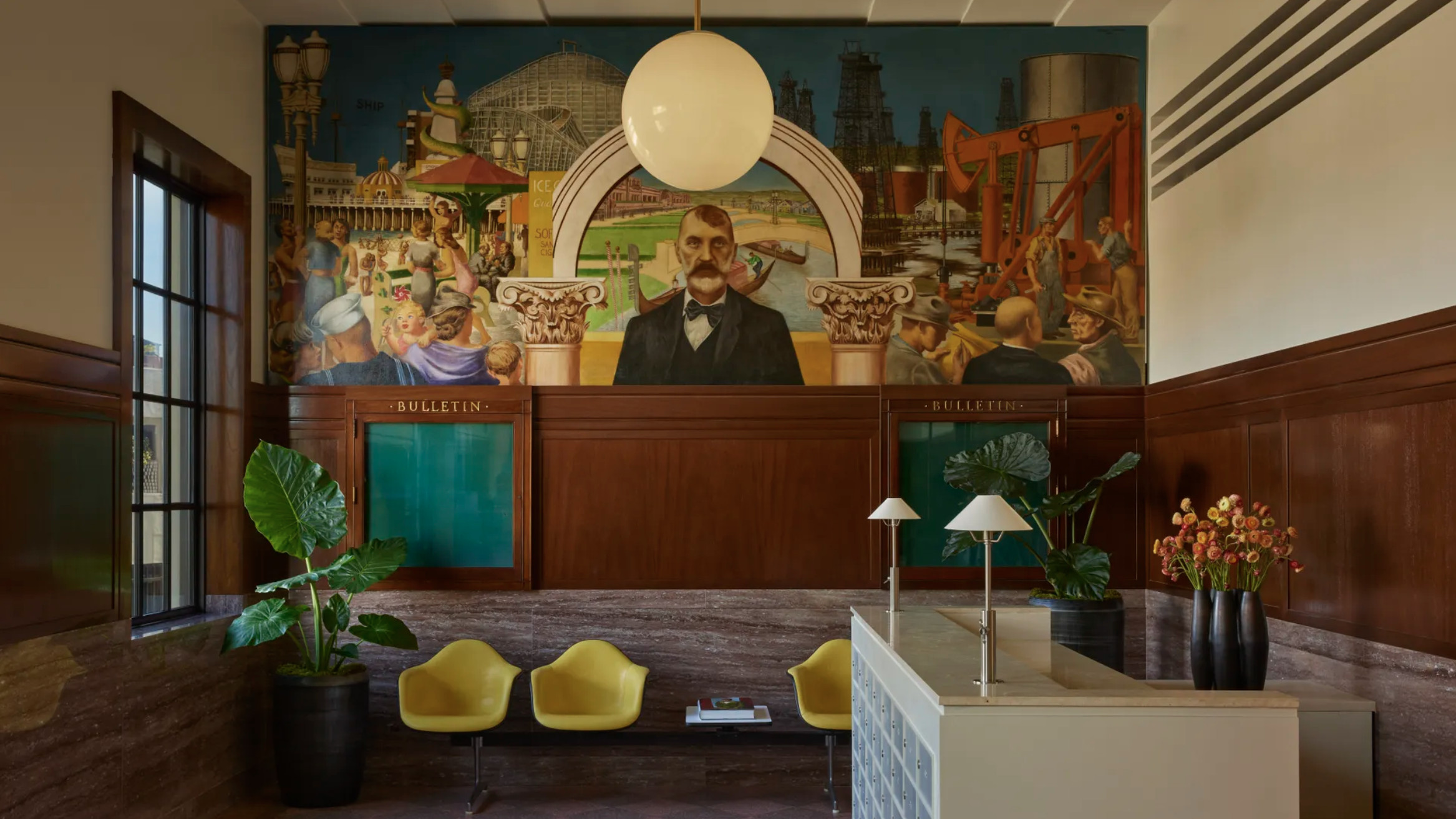 The Lighthouse draws on Bauhaus principles to create a new-era workspace campus
The Lighthouse draws on Bauhaus principles to create a new-era workspace campusThe Lighthouse, a Los Angeles office space by Warkentin Associates, brings together Bauhaus, brutalism and contemporary workspace design trends
By Ellie Stathaki
-
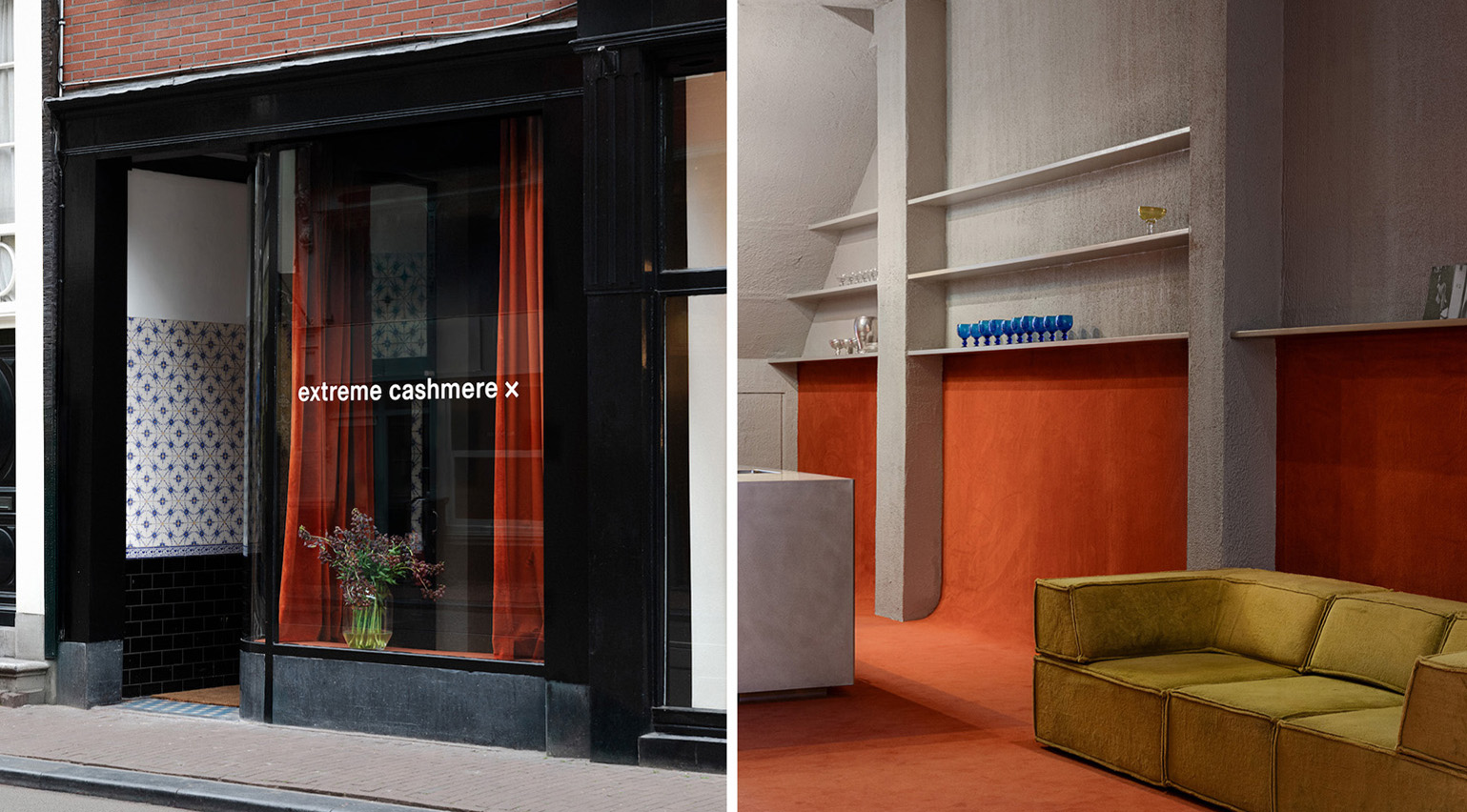 Extreme Cashmere reimagines retail with its new Amsterdam store: ‘You want to take your shoes off and stay’
Extreme Cashmere reimagines retail with its new Amsterdam store: ‘You want to take your shoes off and stay’Wallpaper* takes a tour of Extreme Cashmere’s new Amsterdam store, a space which reflects the label’s famed hospitality and unconventional approach to knitwear
By Jack Moss
-
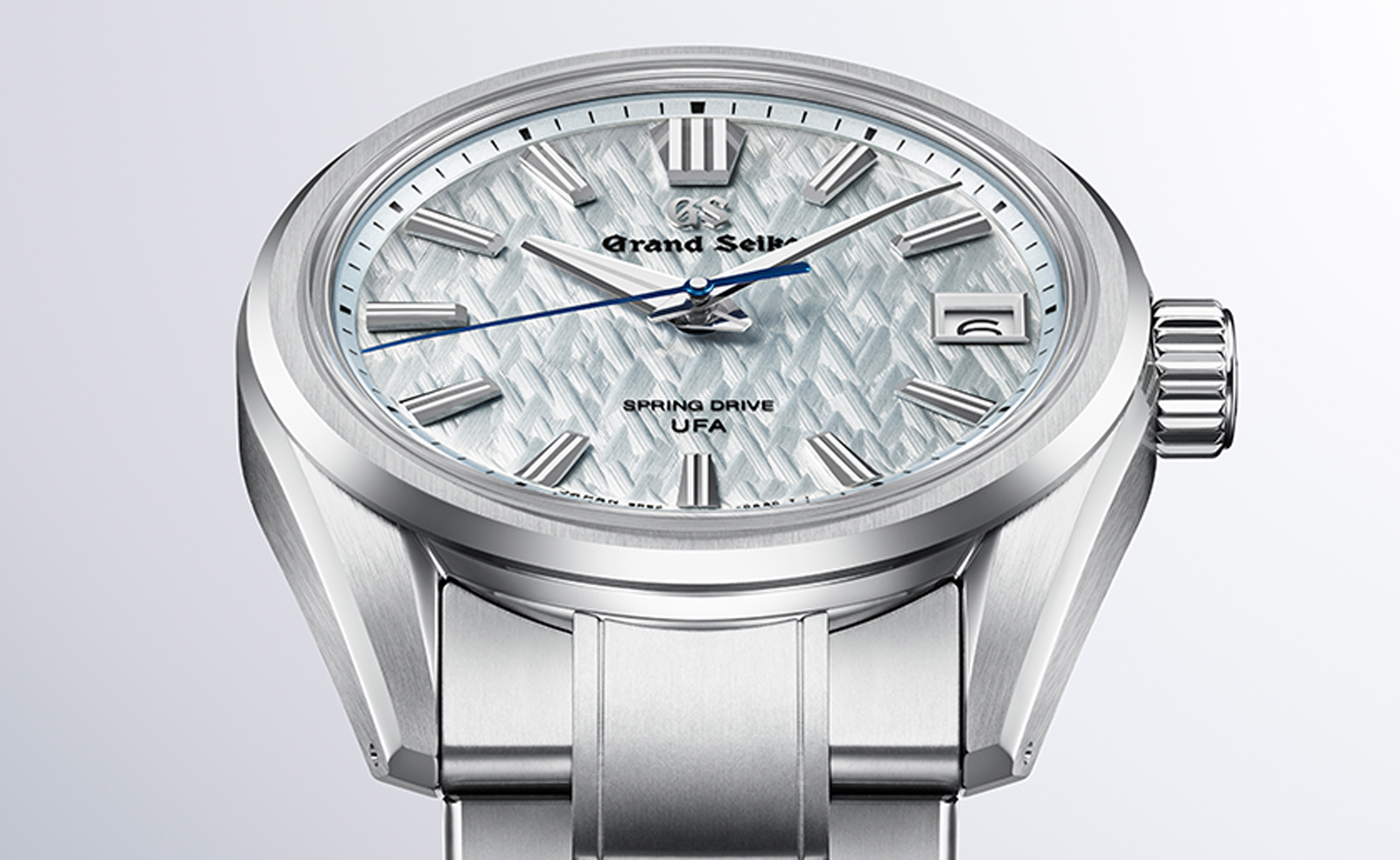 Titanium watches are strong, light and enduring: here are some of the best
Titanium watches are strong, light and enduring: here are some of the bestBrands including Bremont, Christopher Ward and Grand Seiko are exploring the possibilities of titanium watches
By Chris Hall